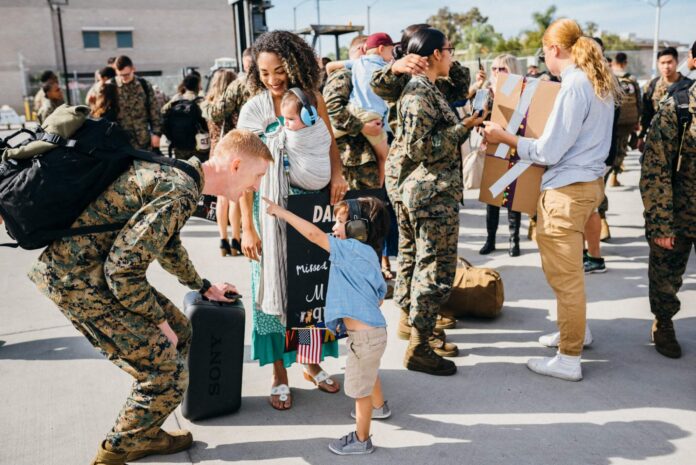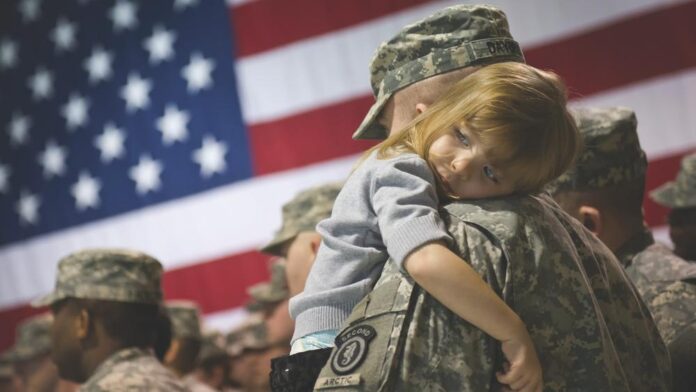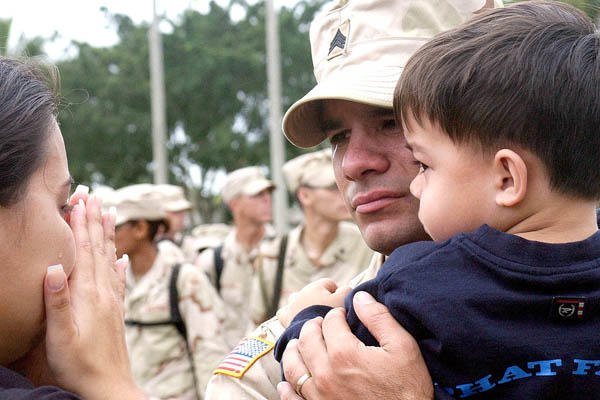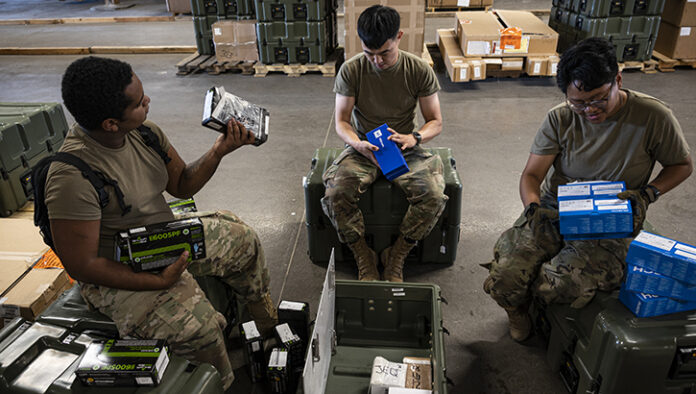As the holiday season winds down, our focus shifts from festive celebrations to the world of post-holiday deployment. This crucial phase is much like the holiday season itself — full of anticipation, challenges, and the joy of delivering something special.
In this article, we’ll explore the key steps to ensure your family’s deployment is as resilient and strong as the symbolic thin ribbons worn by your soldier. So, let’s leave the holiday cheers behind and embark on this journey of strategic post-holiday deployment planning.
1. Make a Plan to Stay Connected During Military Deployment

During military deployment, staying connected with loved ones and fellow soldiers is as crucial as the strategic aspects of the mission itself. Creating a plan to maintain communication bridges the emotional distance and sustains the morale of both the deployed and those waiting back home.
Establish reliable and regular communication channels. This can range from scheduled phone calls or emails to written letters. These days, secure internet-based communication platforms like Zoom can also play a big role. These scheduled communications become something that soldiers and their families can look forward to and rely upon.
2. Utilize Support Networks
It’s also important to tap into existing support networks. Many military organizations offer support groups and communication services specifically designed for families during deployment periods. These networks provide a means of communication, a sense of community, and mutual support.
These support networks often extend beyond just communication facilitation. They may include counseling services, community meetings, and organized social events that bring together families who are going through similar experiences.
Participating in these groups can be incredibly comforting, offering a sense of belonging and understanding that is hard to find elsewhere. It’s a space where experiences and emotions can be shared openly, providing a platform for empathy and mutual support.
Furthermore, these networks can provide practical assistance. This might include help with childcare, financial planning advice, or simple yet essential tasks like home maintenance. For families new to the military lifestyle, these support networks can be a treasure trove of information, helping them adapt to their new circumstances.
For the deployed soldiers, knowing that their families have access to these support systems can be a huge relief. It allows them to focus on their responsibilities, secure in the knowledge that their loved ones back home have additional help.
3. Embrace Creative Communication

Embracing creative forms of communication plays a vital role in maintaining strong emotional connections during military deployment. Encourage sending personalized care packages filled with favorite snacks, small mementos, or handmade items, which can bring comfort and a sense of home to the deployed.
Sharing photographs regularly helps bridge the distance, allowing soldiers to see changes and everyday moments back home. Keeping a journal of daily activities, thoughts, and feelings to share upon return is a profound way of staying connected.
For families with children, encouraging them to draw pictures or write letters to their deployed parent can serve as a therapeutic activity, fostering a sense of closeness and continuity despite the physical separation. These creative communication methods not only keep the bond alive but also bring a personal and heartfelt touch to the challenges of deployment.
4. Preparing for Limited Contact
It’s crucial to prepare for times when communication might be limited due to operational demands or security concerns. During these periods, having pre-written letters or recorded messages can be comforting. It’s important for both parties to understand and respect these limitations, recognizing that silence doesn’t signify neglect but rather a commitment to duty.
5. Emotional Preparedness

Emotional preparedness is crucial in fortifying both soldiers and their loved ones against the psychological challenges of deployment. It’s important to have open discussions about the potential emotional difficulties, such as loneliness, anxiety, and stress, that come with being apart.
Addressing these feelings head-on and devising strategies for coping can significantly bolster the mental well-being of all involved. Such conversations can also strengthen relationships, providing a sense of mutual support and reassurance.
By proactively addressing and planning for these emotional aspects, both soldiers and their families can develop resilience and maintain a strong sense of connection, helping them navigate the intricacies of deployment with greater emotional stability and assurance.
6. Financial Preparedness
Financial preparedness during deployment is paramount for military families. Establishing a comprehensive budget that accounts for both regular expenses and potential emergencies is a crucial first step. Seek guidance from financial experts or military support organizations to create a sound financial plan. Consider setting up automatic bill payments to ensure bills are covered during deployment. Explore financial support options available to military families, such as deployment pay, family separation allowances, and insurance benefits.
7. Mental Health and Support Services

Mental health and support services are vital components of deployment readiness. Prioritize access to counseling and mental health support for both deployed soldiers and their families. These services can provide coping strategies for handling stress, anxiety, and separation-related emotions. Military organizations often offer confidential counseling services, and there are also community-based resources available. Encourage open communication with mental health professionals to address any emotional challenges that may arise during deployment.
Forging Resilience: Navigating Deployment With Strength and Unity
The post-holiday period, a time of readjustment and renewed focus, requires careful preparation, strong communication, and emotional resilience — especially for those in the military. Whether it’s through creative ways of staying connected, tapping into support networks, or preparing for unforeseen events, each step plays a vital role in fortifying the spirit and capabilities of our military personnel.
By embracing these strategies, soldiers and their families can navigate the complexities of deployment with a sense of strength and unity, making each reunion post-deployment all the more meaningful. Begin preparing with the support of your family today.









